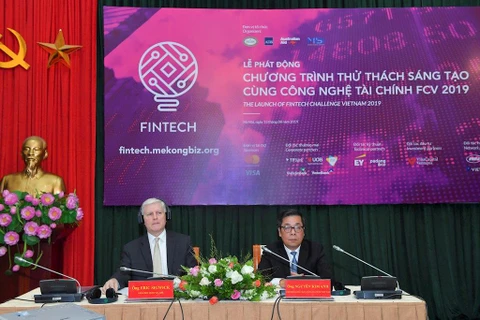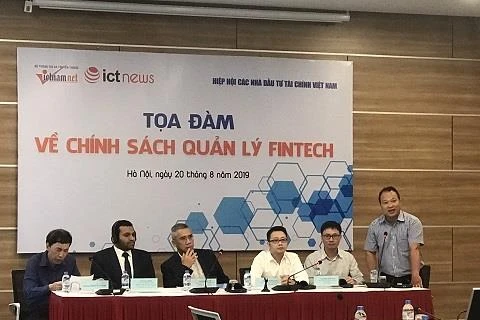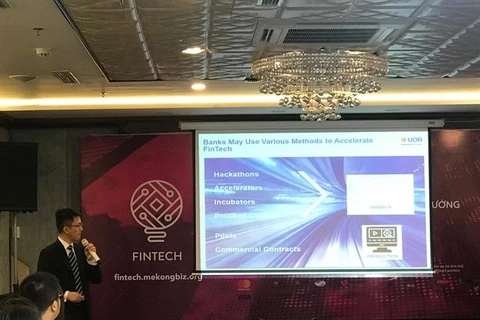 Visitors experience technologies displayed on the sidelines of the Vietnam ICT Outlook Conference held in HCM City on October 31.
Visitors experience technologies displayed on the sidelines of the Vietnam ICT Outlook Conference held in HCM City on October 31.(Photo: VNA)
HCM City (VNA) – Vietnam is a promising market for fintech companies thanks to its young demographic, strong e-commerce growth, and increasing smartphone and internet users, heard a conference in Ho Chi Minh City on October 31.
Pham Xuan Hoe, Deputy Director General of the Banking Strategy Institute at the State Bank of Vietnam, told the Vietnam ICT Outlook Conference titled ‘Shaping the future of Vietnam Fintech’, that financial technology (fintech) has great potential to develop in Vietnam as about 66 percent of the country’s population uses the internet, 64 percent uses social networks, and 60 percent uses smartphones.
“Out of 143 million phone subscriptions, 45 percent are for 3G and 4G services.”
The country has four public banks, 28 private banks, 1,183 people's credit funds and numerous other credit and financial institutions, with which fintech firms could tie-up for mutual benefit, he said.
Lam Nguyen Hai Long, Chairman of the HCM City Computer Association (HCA), said according to the Institute for Development and Research on Banking Technology, the country has 154 enterprises operating in the fintech sector and 70 percent of them are start-ups.
“The number is modest compared to other countries in Southeast Asia, especially Singapore, a great fintech power from whom we need to learn.”
Fintech companies have an advantage over banks by having more convenient and diverse products and services and low operating costs, he said.
The Government has made significant efforts to tailor regulations to increase banking penetration to 70 percent from 59 percent in 2017 and to create a non-cash economy where the cash to total liquidity is less than 10 percent by 2020.
This should spur the development of fintech solutions, he said.
The fintech sector has developed strongly in Vietnam in recent years, but faces considerable challenges, he said.
One of them is the lack of Government policies and regulations that could support the development of an eco-system, he said.
He wanted the Government to quickly develop a legal framework and offer incentives to attract investment from big tech companies in developing fintech platforms.
Nguyen Dinh Thang, Chairman of LienVietPostBank, said: “Digital banking is an inevitable trend.”
He too called on the Government to create a legal framework and adopt policies to support and promote communications to boost non-cash payment and develop the digital economy.
Tran Dinh Cuong, Deputy Director of the State Bank of Vietnam’s HCM City branch, said fintech has become one of the fields the banking industry has paid special attention to recently.
The central bank has established a Steering Committee on Financial Technology to develop strategy and a legal framework to promote the sector.
Phan Tam, deputy minister of Information and Communications, said the financial sector is a backbone of the economy, and the successful adoption of digital technologies to develop new products and services and new business models in the sector would exponentially increase the efficiency of the entire economy.
At the conference, Dr Lillian Koh Noi Keng, CEO of Fintech Academy Singapore, shared experiences in fintech application in Singapore.
Delegates also discussed cybersecurity challenges for fintech; fintech and the workforce; machine learning and AI in the fintech marketplace; fintech and innovative start-ups and other topics./.
VNA























